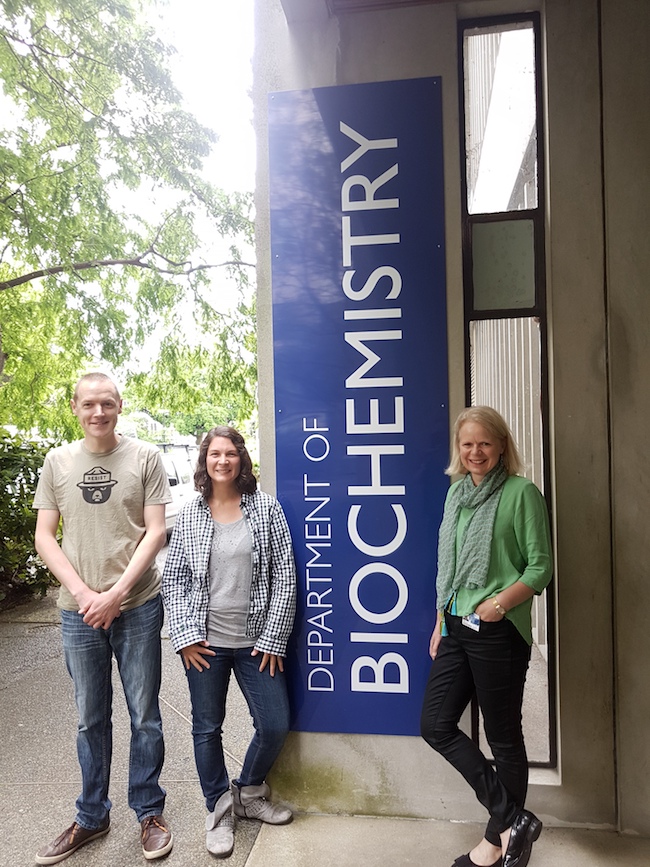Monday 12 November 2018 4:11pm
 Congratulations to Dr Soledad Perez-Santangelo, Professor Catherine Day, and Dr Peter Mace of the Otago Department of Biochemistry for their outstanding success with the Marsden Fund this year.
Congratulations to Dr Soledad Perez-Santangelo, Professor Catherine Day, and Dr Peter Mace of the Otago Department of Biochemistry for their outstanding success with the Marsden Fund this year.
Their funding will help them investigate the genetics of legume circadian clocks and figure out how molecular micromachines work inside cells.
The Marsden Fund supports excellence in leading-edge research in New Zealand. This year $85.6 million has been allocated to 136 research projects throughout the country.
You can read more about this year's Marsden funding round in the Otago University news and on the Royal Society of New Zealand's website:
University of Otago celebrates Marsden Fund success
New Marsden Fund grants support innovative research in Aotearoa from atoms to Antarctica's microbes
Dr Soledad Perez-Santangelo. Adjusting the clock: How naturally occurring variation in circadian clock genes maximises plant growth and fitness in different environments. Mentor: Associate Professor Richard Macknight ($300,000)
Legume crops such as peas, beans, lentils, and lucerne are an essential source of protein for both humans and livestock. Since climate change is altering the geographical range where crop plants can be grown, we need to understand how genetic variations in these plants allow them to grow in different places. Dr Perez-Santangelo will discover and study these genes in the model legume Medicago truncatula, specifically looking at the master regulator - the circadian clock. She hopes her research will help produce legume varieties specifically tailored for local regions and conditions.
Professor Catherine Day. Generating complexity in the ubiquitin code ($935,000)
Ubiquitin is a protein that, as its name suggests, is ubiquitous, i.e. found everywhere, in all types of cells. It is a tag that is stuck onto other proteins in chains, often to indicate that those proteins have to be disposed of and recycled by the cell. The fate of each ubiquitylated protein is determined by the length and linkage-type of the attached chains. When this system goes wrong it can result in cancer developing. Professor Day's team will be figuring out how this 'ubiquitin code' works.
Dr Peter Mace. Inflammation or death via the ASK signalosome – why not both? ($958,000)
When your immune system is challenged by diseases like infection or even obesity and diabetes, molecular signalling hubs called ASKs (apoptosis signal-regulating kinases) help cells to decide how to respond. Dr Mace and his team will be studying ASKs to find out what they look like and how they work together to trigger different levels of these responses.
Photo above: From left, Dr Peter Mace, Dr Soledad Perez-Santangelo, and Professor Catherine Day stand outside the entrance to the Otago Department of Biochemistry
